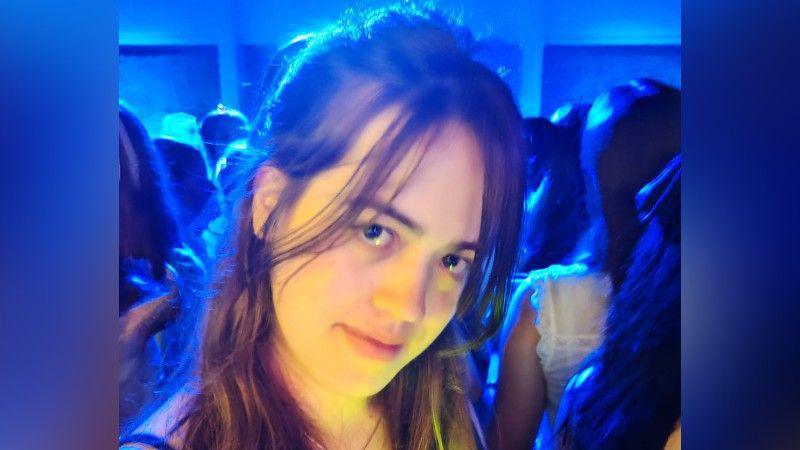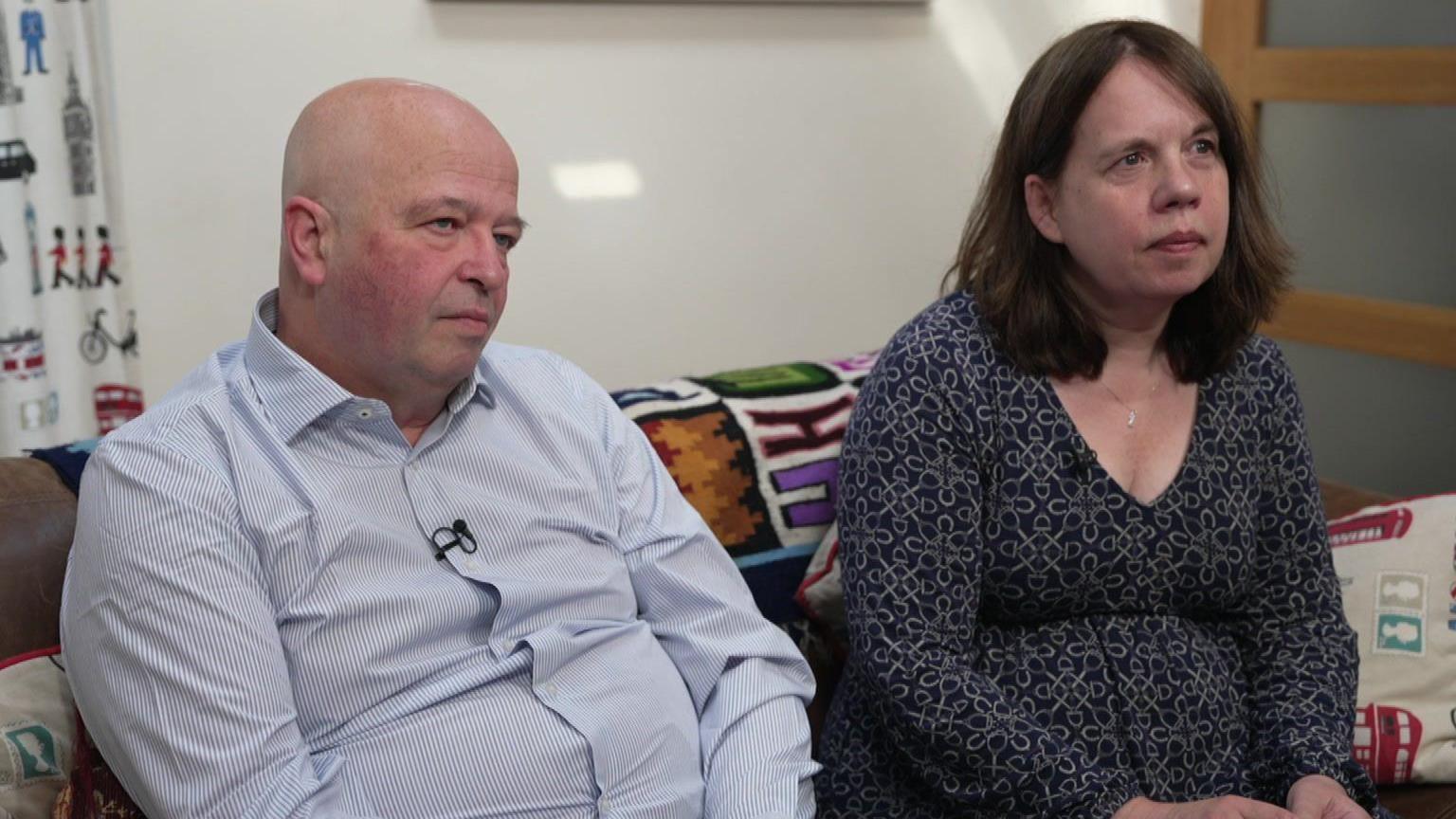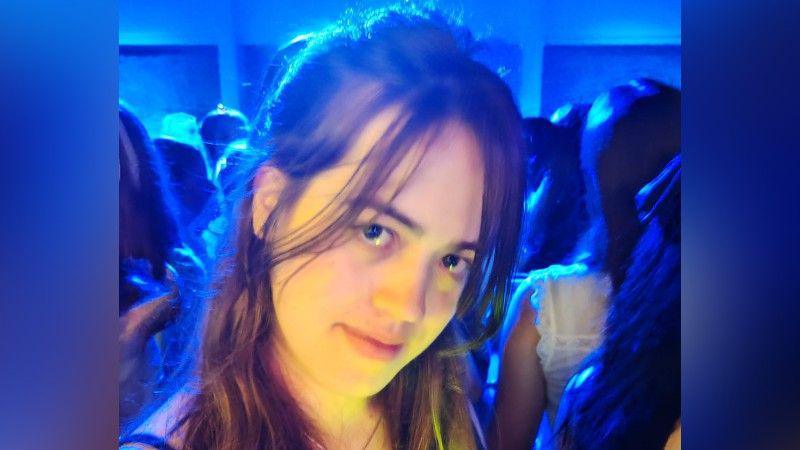Neglect in care of girl, 15, who died of meningitis

Zara Cheesman died of bacterial meningitis on 23 December
- Published
Neglect by ambulance workers contributed to the death of a 15-year-old girl who had bacterial meningitis, a coroner has ruled.
Zara Cheesman died at the Queen's Medical Centre (QMC) on 23 December 2024, four days after she started to feel unwell.
Nottingham Coroner's Court heard she had been taken to A&E by her parents on 20 December and was later discharged. A day later, an East Midlands Ambulance Service (EMAS) crew was sent out to her home after she deteriorated, but they decided not to admit her back to hospital. Zara died two days later.
Delivering her conclusion, coroner Dr Elizabeth Didcock said there were "gross failings" to provide "basic care".
In her conclusion on Wednesday, Dr Didcock said there was a "lack of listening" from the ambulance crew as to what Zara's parents were telling them, in terms of her deteriorating condition.
The coroner said she would send a prevention of future deaths report, external to EMAS as she had ongoing concerns about ambulance staff's understanding of policy, which says they need to ask for guidance from a registered clinician if they decide not to take a child to hospital.
"I'm satisfied neglect contributed to Zara's death," Dr Didcock said.
"In this case, it is the total picture of the EMAS assessment that amounts to neglect."
Dr Didcock also agreed if Zara was taken into hospital on the afternoon of 21 December, antibiotics would have been administered and "on balance she would have survived".

Zara's family called her "incredibly kind, caring and highly intelligent"
The inquest previously heard Zara, from Mapperley Park in Nottingham, came home from school on 19 December feeling unwell and began to vomit, which continued throughout the night into the following morning.
Her parents - Dr Judith Ramage and Dr Mark Cheesman - rang 111 and were advised to attend A&E with Zara, who complained of achy limbs and a stiff neck and shoulders "so painful she couldn't lift her arms".
Zara was triaged and assessed before being sent home with "suspected norovirus".
The inquest heard Zara deteriorated further with a severe headache, a high temperature and was up in the night showing signs of confusion.
Her parents again called 111, and EMAS were asked to attend on 21 December.
The inquest heard Zara's parents thought two paramedics had attended, but they were later told they were ambulance technicians.
Michael Hoy, who has been an ambulance technician for 17 years, told the inquest he thought "she was still suffering from a vomiting bug or norovirus" and decided not to take Zara to hospital.
The technician told the court he should have investigated Zara's symptoms further around confusion, urinary incontinence and the severe headache, but did not.
After being told he did the wrong thing by not taking Zara to hospital, Mr Hoy replied: "In hindsight I should have spoken to the clinical lead... my judgement was wrong."
A day later, on 22 December, emergency crews arrived when Zara collapsed in the home.

Zara's parents, Dr Mark Cheesman and Dr Judith Ramage, said their daughter was a talented pianist who wanted to become a human rights lawyer
Her father, Dr Cheesman, recalled emergency crews arriving at the house.
He said the living room was full of emergency services, but Zara ended up going into respiratory arrest.
"They were working on her for what felt like hours," he said.
"She was still responding in the house but by the time they got her to [the Queen's Medical Centre] she wasn't responding."
'Mourn her grief'
Zara's parents were told she had no chance of survival.
"She was on the brink of adulthood - she was about to go and fly," her mother, Dr Ramage, said.
"So more than our grief, we feel we have to mourn her grief for her loss of life, for what she should have been.
"It just makes the pain harder. If she had an illness, that they did everything to treat her, then that would be hard.
"The hardest part is knowing that she should have been and could have been saved."
Keeley Sheldon, EMAS director of quality, said the service "fully accept" the coroner's findings.
"I am truly sorry that we missed the opportunity to take Zara to hospital for further assessment," she said.
"We deeply regret that we didn't support Zara in the way she needed on 21 December 2024.
"We will make changes to ensure that this does not happen again."
'Needless tragedy'
Representing the family, Gemma Bedford, managing associate at Freeths, said: "We are grateful to the coroner for carrying out a thorough investigation into the tragic circumstances surrounding Zara's death - a loss that any family would find incredibly difficult to come to terms with.
"The family welcomes the prevention of future deaths order and sincerely hopes that action is urgently taken to ensure lessons are learned. They hope that meaningful changes will be made to prevent other families from experiencing such a needless tragedy.
"The inadequacy of the assessment carried out by the EMAS technicians led to a failure to convey Zara to hospital which, on balance, led to her death.
"The treatment for meningitis is well known and established, and we are continuing to support the family in seeking answers as to why this care was not provided."
Get in touch
Tell us which stories we should cover in Nottingham
Follow BBC Nottingham on Facebook, external, on X, external, or on Instagram, external. Send your story ideas to eastmidsnews@bbc.co.uk, external or via WhatsApp, external on 0808 100 2210.
Related topics
- Published11 September

- Published10 September
